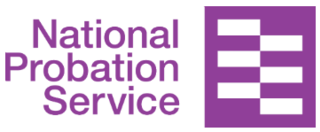Related Research Articles
Life imprisonment is any sentence of imprisonment for a crime under which convicted people are to remain in prison for the rest of their natural lives or indefinitely until pardoned, paroled, or otherwise commuted to a fixed term. Crimes for which, in some countries, a person could receive this sentence include murder, torture, terrorism, child abuse resulting in death, rape, espionage, treason, drug trafficking, drug possession, human trafficking, severe fraud and financial crimes, aggravated criminal damage, arson, kidnapping, burglary, and robbery, piracy, aircraft hijacking, and genocide, crimes against humanity, war crimes, severe cases of child pornography, or any three felonies in case of three-strikes law. Life imprisonment can also be imposed, in certain countries, for traffic offences causing death. Life imprisonment is not used in all countries; Portugal was the first country to abolish life imprisonment, in 1884.

In justice and law, house arrest is a measure by which a person is confined by the authorities to their residence. Travel is usually restricted, if allowed at all. House arrest is an alternative to being in a prison while awaiting trial or after sentencing.
Measure 11, also known as "One Strike You're Out", was a citizens' initiative passed in 1994 in the U.S. State of Oregon. This statutory enactment established mandatory minimum sentencing for several crimes. The measure was approved in the November 8, 1994 general election with 788,695 votes in favor, and 412,816 votes against.

Parole is a form of early release of a prison inmate where the prisoner agrees to abide by certain behavioral conditions, including checking-in with their designated parole officers, or else they may be rearrested and returned to prison.
Probation in criminal law is a period of supervision over an offender, ordered by the court often in lieu of incarceration.

The Probation Service for England and Wales is a statutory criminal justice service, mainly responsible for the supervision of offenders in the community and the provision of reports to the criminal courts to assist them in their sentencing duties. It was established in its current form by the Criminal Justice and Court Services Act in April 2001, but has existed since 1907 as a set of area-based services interacting at arm's length with central government.
A parole board is a panel of people who decide whether an offender should be released from prison on parole after serving at least a minimum portion of their sentence as prescribed by the sentencing judge. Parole boards are used in many jurisdictions, including the United Kingdom, the United States, and New Zealand. A related concept is the board of pardons and paroles, which may deal with pardons and commutations as well as paroles.

A probation or parole officer is an official appointed or sworn to investigate, report on, and supervise the conduct of convicted offenders on probation or those released from incarceration to community supervision such as parole. Most probation and parole officers are employed by the government of the jurisdiction in which they operate, although some are employed by private companies that provide contracted services to the government.
Truth in sentencing (TIS) is a collection of different but related public policy stances on sentencing of those convicted of crimes in the justice system. In most contexts, it refers to policies and legislation that aim to abolish or curb parole so that convicts serve the period to which they have been sentenced. Truth in sentencing advocates relate such policies in terms of the public's right to know. They argue, for example, that it is deceptive to sentence an individual to "seven-to-nine years" and then release them after they have served only six years.
The U.S. Probation and Pretrial Services System, also called the Office of Probation and Pretrial Services, part of the Administrative Office of the United States Courts, is the probation office of the federal judiciary of the United States. It serves the United States district courts in all 94 federal judicial districts nationwide and constitutes the community corrections arm of the Federal Judiciary. It administers probation and supervised release under United States federal law enforced by probation officers.
In England and Wales, life imprisonment is a sentence that lasts until the death of the prisoner, although in most cases the prisoner will be eligible for early release after a minimum term set by the judge. In exceptional cases a judge may impose a "whole life order", meaning that the offender is never considered for parole, although they may still be released on compassionate grounds at the discretion of the Home Secretary. Whole life orders are usually imposed for aggravated murder, and can only be imposed where the offender was at least 21 years old at the time of the offence being committed.

The New Hampshire Department of Corrections is the government agency in the U.S. state of New Hampshire charged with overseeing the state correctional facilities, supervising probation and parolees, and serving in an advisory capacity in the prevention of crime and delinquency. As of June 30, 2013, the Department had an inmate population of 2,791, 15,267 on probation or parole, and 893 total employees, 470 as corrections officers and 64 as probation/parole officers. The agency has its headquarters in Concord.
In the United States, life imprisonment is amongst the most severe punishments provided by law, depending on the state, and second only to the death penalty. According to a 2013 study, 1 of every 20,000 inhabitants of the U.S. were imprisoned for life as of 2012. Many U.S. states can release a convict on parole after a decade or more has passed, but in California, people sentenced to life imprisonment can normally apply for parole after seven years. The laws in the United States categorize life sentences as "determinate life sentences" or "indeterminate life sentences," the latter indicating the possibility of an abridged sentence, usually through the process of parole. For example, sentences of "15 years to life," "25 years to life," or "life with mercy" are called "indeterminate life sentences", while a sentence of "life without the possibility of parole" or "life with no mercy" is called a "determinate life sentence". The potential for parole is not assured but discretionary, making it an indeterminate sentence. Even if a sentence explicitly denies the possibility of parole, government officials may have the power to grant an amnesty to reprieve, or to commute a sentence to time served.

In the United States, sentencing law varies by jurisdiction. The jurisdictions in the US legal system are federal, state, regional, and county. Each jurisdictional entity has governmental bodies that create common, statutory, and regulatory law, although some legal issues are handled more often at the federal level, while other issues are the domain of the states. Civil rights, immigration, interstate commerce, and constitutional issues are subject to federal jurisdiction. Issues such as domestic relations, which includes domestic violence; marriage and divorce; corporations; property; contracts; and criminal laws are generally governed by states, unless there is federal preemption.
Indefinite imprisonment or indeterminate imprisonment is the imposition of a sentence by imprisonment with no definite period of time set during sentencing. It was imposed by certain nations in the past, before the drafting of the United Nations Convention against Torture (CAT). The length of an indefinite imprisonment was determined during imprisonment based on the inmate's conduct. The inmate could have been returned to society or be kept in prison for life.

United States federal probation and supervised release are imposed at sentencing. The difference between probation and supervised release is that the former is imposed as a substitute for imprisonment, or in addition to home detention, while the latter is imposed in addition to imprisonment. Probation and supervised release are both administered by the U.S. Probation and Pretrial Services System. Federal probation has existed since 1909, while supervised release has only existed since 1987, when it replaced federal parole as a means for imposing supervision following release from prison.
A rehabilitation policy within criminology, is one intending to reform criminals rather than punish them and/or segregate them from the greater community.
The New Zealand Parole Board is an independent statutory body established in 2002 that considers offenders for parole. Its task "is to undertake an assessment of the risk that long-term sentenced offenders might pose to the safety of the community if they were to be released before the end of their sentence". The Board also sets conditions of release for offenders so their reintegration back in to the community can be effectively managed. Once the conditions are set it becomes the responsibility of Community Corrections to manage the offender." 'Long term' is defined as more than 24 months. Short-term prisoners are automatically released after serving half their sentence.
The New Zealand Probation Service is a branch or service of the New Zealand Corrections Department. Established in 1886, its role is to manage offenders sentenced to community based sentences such as home detention, community detention and intensive supervision. The Service also manages prisoners in the community who have been released on parole and offenders on release conditions at the end of their prison sentence. According to Corrections website, in 2014 the Service was looking after approximately 30,000 offenders in the community. The Probation Officer's role is described as "work(ing) with people on probation to motivate them to make changes in their lives. This may include attending programmes to address violence, alcohol and drug abuse or driving offences."

Lifetime probation is reserved for relatively serious legal offenders. The ultimate purpose of lifetime probation is to examine whether offenders properly maintain good behavior as well as capability of patience under lifetime probation serving circumstance. An offender is required to abide by particular conditions for rest of their entire life in order to nurture superior social behaviour as a punishment for their criminal offence. Condition of probation orders contain supervision, electronic tagging, reporting to his or her probation or parole officer, as well as attending counselling. The essential component of lifetime probation carries the sense of being examined for well-being character and behaviour for life term period. Legislative framework regarding probation may vary depending on the country or the state within a certain country as well as the duration and condition of probational sentencing.
References
- ↑ "What Is Shock Probation?". wiseGeek.